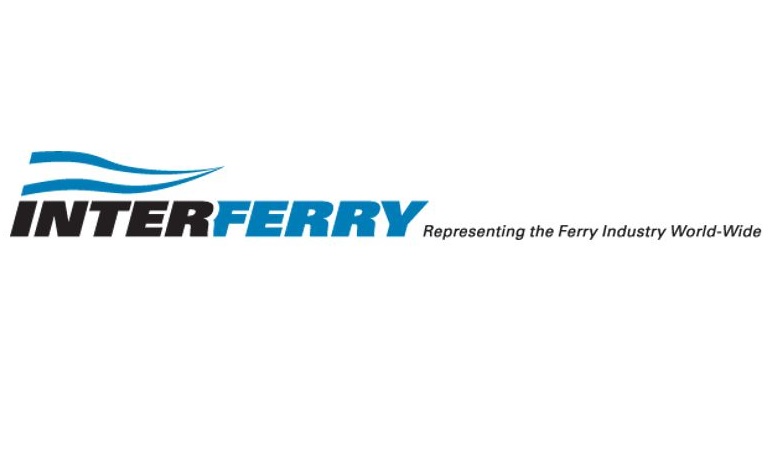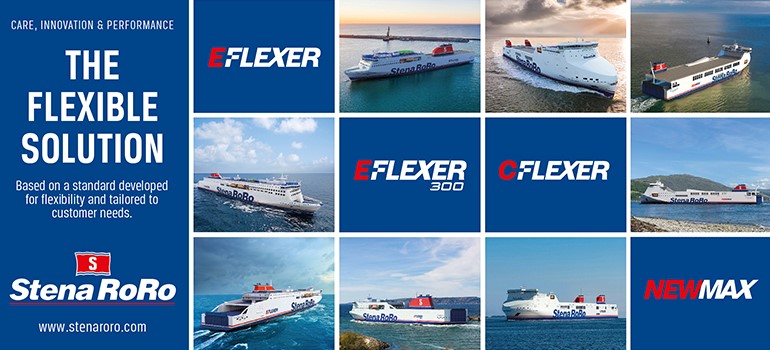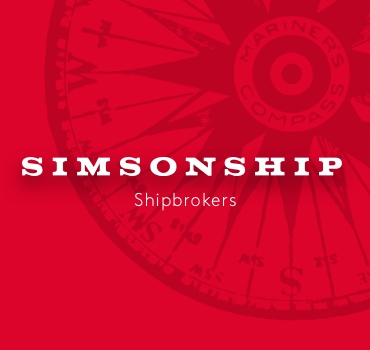
Interferry conference set to drive debate on industry’s major issues
Keynote speakers from the military, merchant fleet and port sectors will feature when trade association Interferry addresses three of shipping’s most important issues – safety, security and the environment – at its 43rd annual conference in Cancun, Mexico, in early October.
“Ferries already provide one of the safest and most eco-friendly means of transporting passengers and goods,” says CEO Mike Corrigan, “but sharing information and experience from industry experts ensures that operators stay up-to-date on potential threats, future challenges and, more importantly, how to manage them.”
In the opening session, the North Atlantic Treaty Organization’s role in maritime security will be outlined by the Royal Norwegian Navy’s Cdr Ben Lofstad, director of the NATO Shipping Centre (NSC), the primary link between NATO’s naval authorities and the commercial sector. The NSC alerts shipowners and ports on incidents or perceived threats, and provides advice on preventive measures.
Cdr Lofstad will warn of the need to stay vigilant about security on ferries and at ports. He will also highlight concerns over cyberattack, especially the rise in GPS jamming and spoofing, which disturbs or falsifies the presentation of a ship’s position – with the consequent risk of collision or running aground, particularly for vessels that operate in narrow fairways and coastal waters.
NSC interventions complement NATO’s Naval Cooperation and Guidance for Shipping (NCAGS) Doctrine, which supports the safe passage of merchant ships in times of peace, tension, crisis and war. “As a military body, we prepare for conflict but these doctrinal procedures are easily transferrable to peacetime,” notes Cdr Lofstad. “In peacetime as well as in crisis, we are very occupied with supporting the free flow of trade to maintain economic stability.”
Liaison with commercial stakeholders is done via an exhaustive email network, a recently launched monthly newsletter on the NSC’s homepage at www.shipping.nato.int and by attending meetings such as the Informal Shipowners Security Forum, which includes Interferry. There is also a facility - detailed on the website - for company security officers to contact the NSC.
As Cdr Lofstad stresses: “Seen from a military standpoint, the current threat level towards the shipping industry is relatively low. However, due to the changing nature of threat, now including terrorism and the cyber domain, it’s increasingly important that communication between military and civilian maritime security stakeholders is two-way. We need to know if seafarers see or suspect anything unusual so that we can compile and share the information and build mutual confidence in what we are doing.”
Fellow keynote speaker Mark Sutcliffe, founder and director of the CSO Alliance of maritime security officers, will explain a new initiative to combat cyberattack and describe ongoing discussions to form a sector-specific security alliance between ferry ports and ferry operators.
The British Army and maritime security veteran formed the Alliance in 2012 due to concerns over the flow of intelligence on piracy in Somalia. His concept of a real time risk management tool is now used by 700 members in more than 40 countries.
“We run a password-protected platform that can be can be accessed 24/7 to communicate issues and questions for support or debate,” says Mr Sutcliffe. “The system is integrated to all the key military maritime and merchant marine reporting centres, so we really do work as one on the security issues our industry faces.”
The membership includes supporters such as DNV GL, Norwegian War Risk, the Marshall Islands Registry and aircraft manufacturer Airbus, which adds experience from the aviation industry. Airbus is among partners involved in the new Maritime Cyber Alliance initiative, which has been launched to share trends and tactics.
Interferry’s own security committee will present updates on its close engagement with European Union studies into ferry security and on work to produce ‘Possible Measures’ guidance enabling operators to make a bespoke choice of solutions best suited to their particular services.
The committee’s preference for bespoke rather than blanket measures was demonstrated in July when France proposed a national requirement for passengers boarding ferries to be checked as they left the vehicle deck. Interferry and the operators argued that this was a major and inherently unsafe logistics challenge. A more risk-based approach was then approved, allowing local authorities and operators to agree solutions for specific ships and services.
Safety sessions will include a report from Interferry’s fire safety working group, which is collaborating with the European Maritime Safety Agency on ro-ro deck fire protection and also developing a second edition of its best practice guide.
Fabio Croccolo, director of the Italian Ministry of Infrastructure and Transport, will reveal crucial preventive measures arising from investigations into fires on board the Italian-flagged Norman Atlantic and Sorrento. Firefighting techniques and training will also be examined in case studies from a stream of specialist companies. These will advocate the need for constant crew and equipment readiness in first responder scenarios, notably with the assistance of performance tracking technology.
Interferry’s specially formed domestic ferry safety committee will review progress on support for developing nations, which involves producing a risk assessment and action plan before approaching potential funding partners. Other speakers will cover possible solutions including the use of affordable AIS responders and automated draught indicator systems.
Environmental sessions will start with keynote speaker Robin Silvester, president and CEO of the Port of Vancouver. Canada’s largest port is recognised as an industry leader on sustainability initiatives, particularly through incentives for port users to cut carbon and noise emissions.
“Nearly all port stakeholders have embraced sustainability in their operations, with many making significant investments beyond regulatory minimums,” notes Mr Silvester. “Our strong performance over the past decade - with overall cargo throughput up by 39% and operating revenue increased by 76% - demonstrates how we can successfully facilitate healthy growth in trade while also protecting the environment.”
Ship recycling and disposal – of growing interest at a time when fleet renewals are on the increase - will be discussed by a body of legal, shipbreaking, class society and BIMCO specialists. The panel’s review of current best practice in the ethical disposal of old tonnage will suggest potential financial benefits despite the cost increases imposed by higher regulatory standards.
Sessions on future tonnage will explore environmentally friendly solutions for ship designs and propulsion. Topics range from hull forms, hydrogen power and lightweight materials to zinc underwater coatings and ferry-specific ballast water management systems.
The 2018 Interferry conference in Cancun is hosted by Ultramar, Mexico’s leading passenger ferry company, and takes place on Monday and Tuesday October 8-9 as the core of a knowledge-sharing, networking and social event running from October 6-10.
sep 12 2018
Most read
The world’s largest battery installation on a RoPax got its final approval from the class
feb 18 2026

















